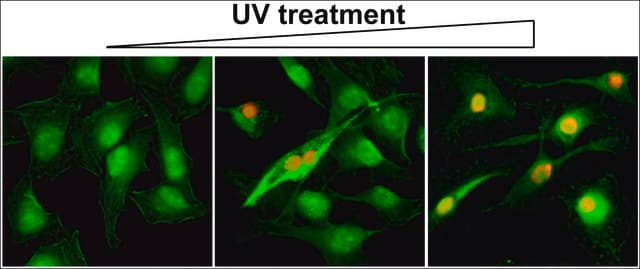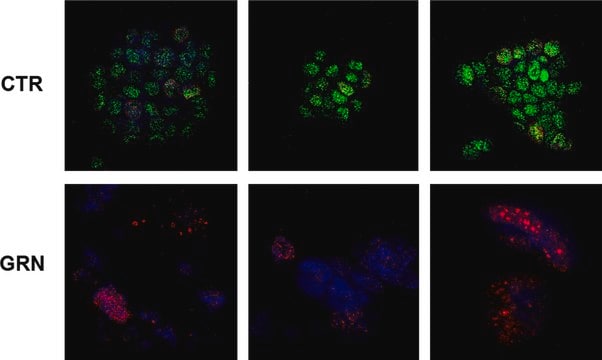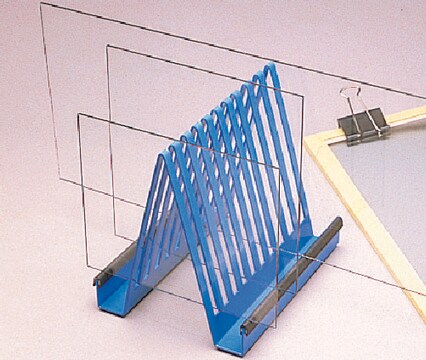07-164
Anti-phospho-H2A.X (Ser139) Antibody
Upstate®, from rabbit
Sinónimos:
H2A histone family, member Q, histone 2, H2ac, histone IIa, histone cluster 2, H2ac
About This Item
Productos recomendados
biological source
rabbit
Quality Level
antibody form
purified immunoglobulin
antibody product type
primary antibodies
clone
polyclonal
species reactivity
human, vertebrates
packaging
antibody small pack of 25 μg
manufacturer/tradename
Upstate®
technique(s)
ChIP: suitable (ChIP-seq)
immunoprecipitation (IP): suitable
western blot: suitable
isotype
IgG
NCBI accession no.
UniProt accession no.
shipped in
ambient
target post-translational modification
phosphorylation (pSer139)
Gene Information
human ... HIST2H2AC(8338)
General description
Specificity
Immunogen
Application
A previous lot of this antibody successfully immunoprecipitated phosphorylated H2A.X as determined by an independent laboratory.
Quality
Western Blot Analysis:
1:500 dilution of this lot detected phospho-H2A.X on 10 μg of staurosporine treated Jurkat lysate.
Target description
Linkage
Physical form
Storage and Stability
Handling Recommendations: Upon receipt, and prior to removing the cap, centrifuge the vial and gently mix the solution. Aliquot into microcentrifuge tubes and store at -20°C.
Avoid repeated freeze/thaw cycles, which may damage IgG and affect product performance. Note: Variability in freezer temperatures below -20°C may cause glycerol-containing solutions to become frozen during storage.
Analysis Note
Staurosporine-treated Jurkat lysate, UV-treated HT-29 cells, doxorubicin-treated HT-29 cells.
Other Notes
Legal Information
¿No encuentra el producto adecuado?
Pruebe nuestro Herramienta de selección de productos.
Storage Class
10 - Combustible liquids
wgk_germany
WGK 1
Certificados de análisis (COA)
Busque Certificados de análisis (COA) introduciendo el número de lote del producto. Los números de lote se encuentran en la etiqueta del producto después de las palabras «Lot» o «Batch»
¿Ya tiene este producto?
Encuentre la documentación para los productos que ha comprado recientemente en la Biblioteca de documentos.
Nuestro equipo de científicos tiene experiencia en todas las áreas de investigación: Ciencias de la vida, Ciencia de los materiales, Síntesis química, Cromatografía, Analítica y muchas otras.
Póngase en contacto con el Servicio técnico








